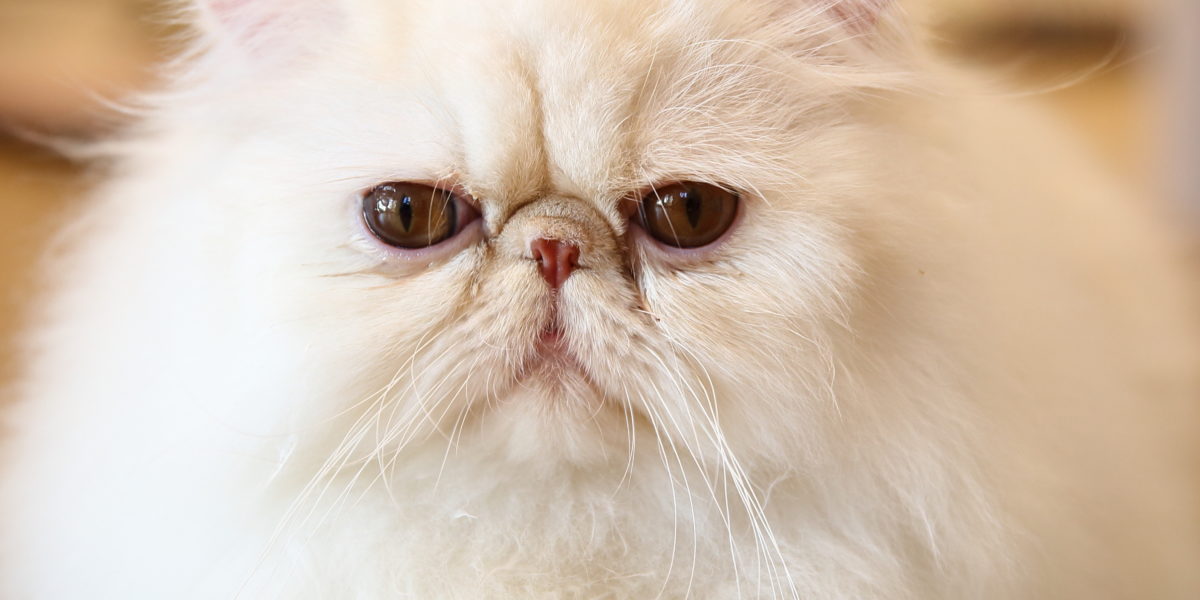Contents
- I. Introduction
- II. Understanding Persian Cats
- III. Factors to Consider When Leaving Persian Cats Alone
- IV. Frequently Asked Questions about Leaving Persian Cats Alone
- 1. Can Persian cats be left alone for long periods of time?
- 2. How long can Persian cats be left alone?
- 3. What are the potential risks of leaving Persian cats alone?
- 4. How can I ensure my Persian cat is comfortable when left alone?
- 5. Should I consider getting another cat as a companion?
- 6. Can I hire a pet sitter or ask a friend to check on my Persian cat?
- 7. Are there any alternatives to leaving my Persian cat alone?
- 8. How can I help my Persian cat adjust to being alone?
- I. Introduction
- II. Understanding Persian Cats
- III. Factors to Consider When Leaving Persian Cats Alone
- IV. Frequently Asked Questions about Leaving Persian Cats Alone
- 1. Can Persian cats handle being alone for long periods?
- 2. How long can I leave my Persian cat alone?
- 3. What can I do to keep my Persian cat entertained while I’m away?
- 4. Should I consider getting a companion for my Persian cat?
- 5. Can I leave my Persian cat alone overnight?
- 6. How can I prepare my Persian cat for being alone?
- 7. Should I hire a pet sitter or use a boarding facility?
- 8. What signs should I look for to determine if my Persian cat is distressed when left alone?
I. Introduction

Persian cats are known for their luxurious and long fur, expressive eyes, and gentle temperament. These beautiful felines have captivated cat lovers around the world with their elegant appearance and friendly nature. However, if you are considering bringing a Persian cat into your home, it’s important to consider whether they can be left alone for extended periods of time.
Like all cats, Persian cats are independent creatures. They have the ability to entertain themselves and are generally capable of being alone for a few hours each day. However, there are several factors to consider when determining if a Persian cat can be left alone:
1. Personality and Temperament
Each Persian cat has its own unique personality and temperament. While some cats may be more independent and comfortable with alone time, others may become anxious or stressed when left alone for long periods. It’s important to observe your cat’s behavior and assess their comfort level with solitude.
2. Socialization and Bonding
Persian cats are known for their desire for human companionship and affection. They enjoy being around their owners and thrive on social interactions. If a Persian cat is left alone for extended periods, they may become lonely and develop behavioral issues. It’s crucial to provide them with enough socialization and bonding time to keep them emotionally fulfilled.
3. Environmental Enrichment
Persian cats are indoor cats by nature, and it’s essential to create an environment that provides mental stimulation and entertainment in their absence. This can include interactive toys, scratching posts, climbing trees, and even a window perch to observe the outside world.
4. Basic Needs
Like any pet, Persian cats have basic needs that require attention even when you’re not around. These include access to fresh water, a clean litter box, and regular feeding. It’s important to ensure that these needs are met before leaving your Persian cat alone.
5. Alternative Options
If you find that your Persian cat struggles with being alone, there are alternative options to consider. You can hire a pet sitter or enlist the help of a trusted friend or family member to check in on your cat while you’re away. Another option is to adopt a companion for your Persian cat, such as another feline friend, to keep them company in your absence.
II. Understanding Persian Cats

Persian cats are known for their luxurious long coats, expressive eyes, and gentle temperament. If you are considering getting a Persian cat as a pet, it is important to understand their unique characteristics and needs.
1. Origins and Breed Characteristics
Persian cats originated in Persia (modern-day Iran) and were brought to Europe in the 17th century. They have a distinctive round face, small ears, and a stocky build. Their long, dense coats require regular grooming to prevent matting and keep them looking their best.
2. Temperament and Personality
Persian cats are known for their calm and gentle nature. They are typically laid-back and enjoy a peaceful environment. They are not as active as some other cat breeds and prefer a relaxed lifestyle. Persian cats are often described as being affectionate and enjoy cuddling with their owners.
3. Care and Grooming
Due to their long coats, Persian cats require regular grooming to keep their fur healthy and tangle-free. Daily brushing is recommended to prevent matting and hairballs. In addition, regular baths and ear cleanings are necessary to maintain their overall hygiene. It is important to establish a grooming routine from a young age to ensure your Persian cat becomes comfortable with the process.
4. Health Concerns
Like any other breed, Persian cats can be prone to certain health issues. The most common concerns include eye problems, such as excessive tearing and eye infections, due to their flat faces. They are also prone to respiratory issues and dental problems. Regular veterinary check-ups and a balanced diet can help keep your Persian cat healthy.
5. Exercise and Environment
Although Persian cats are not as energetic as some other breeds, they still require daily exercise and mental stimulation to prevent obesity and boredom. Providing them with interactive toys and scratching posts can help keep them active. Persian cats are best suited for indoor living, as they are not as adept at defending themselves outdoors.
By understanding the unique characteristics and needs of Persian cats, you can ensure that you provide them with the care and environment they require. Whether you are a first-time cat owner or have experience with other breeds, the affectionate and gentle nature of Persian cats can make them wonderful companions.
III. Factors to Consider When Leaving Persian Cats Alone

Leaving your Persian cat alone can be a daunting decision, as these fluffy felines require special care and attention. However, with proper planning and consideration, you can ensure their well-being even when you’re not around. Here are some important factors to keep in mind:
1. Duration of Time
One of the key factors to consider is the length of time you’ll be leaving your Persian cat alone. Cats, including Persians, are generally independent creatures and can handle short periods of solitude. However, it is important to remember that they are social animals and need regular interaction and companionship.
2. Environmental Enrichment
Persian cats thrive in a stimulating and enriching environment. Before leaving them alone, make sure to provide plenty of toys, scratching posts, and climbing structures to keep them entertained. Interactive toys and puzzles can also help simulate their natural hunting instincts and keep them mentally engaged.
3. Food and Water Availability
Ensure that your Persian cat has access to fresh food and water at all times. Consider using automatic feeders and water dispensers to maintain a consistent schedule, especially if you’ll be away for extended periods. Additionally, consult with your veterinarian to determine the appropriate diet and portion sizes for your cat’s specific needs.
4. Litter Box Maintenance
Persian cats are known for their luxurious coats, which require regular grooming. Similarly, their litter box should be kept clean and odor-free. Before leaving your cat alone, thoroughly clean the litter box and ensure it is easily accessible. Consider using self-cleaning litter boxes or arranging for a pet sitter to maintain cleanliness if you’ll be away for an extended period.
5. Safety and Security
Prioritize your Persian cat’s safety and security while you’re away. Secure any potentially hazardous areas in your home, such as open windows or balconies. Keep toxic substances and plants out of reach, and ensure that your cat cannot accidentally escape. Consider microchipping your cat and providing identification tags to help reunite them with you in case they go missing.
By considering these factors, you can make leaving your Persian cat alone a worry-free experience. However, it is important to remember that every cat is unique, and their individual needs may vary. It’s always a good idea to consult with your veterinarian or a professional pet sitter for personalized advice and recommendations.
IV. Frequently Asked Questions about Leaving Persian Cats Alone

Leaving Persian cats alone for extended periods of time can be a concern for many pet owners. Here are some frequently asked questions to help address any worries you may have:
1. Can Persian cats be left alone for long periods of time?
While Persian cats are known for their independent nature, it is not recommended to leave them alone for extended periods of time. These cats thrive on human companionship and may become lonely or anxious if left alone for too long.
2. How long can Persian cats be left alone?
It is generally advised not to leave Persian cats alone for more than 24-48 hours. Beyond this timeframe, it is essential to arrange for someone to check on their well-being, provide food and water, and offer some social interaction.
3. What are the potential risks of leaving Persian cats alone?
Leaving Persian cats alone for prolonged periods can lead to behavioral issues such as excessive meowing, destructive behavior, or even depression. They may also experience health problems if their basic needs, such as fresh water and a clean litter box, are not met regularly.
4. How can I ensure my Persian cat is comfortable when left alone?
There are a few ways to make sure your Persian cat feels secure and content when left alone. Provide them with plenty of mental stimulation, such as puzzle toys or interactive feeders. Leave out comfortable bedding and familiar scents to create a soothing environment.
5. Should I consider getting another cat as a companion?
Having another cat as a companion can be beneficial for Persian cats, especially if they are prone to loneliness. However, it is crucial to introduce the cats properly and ensure they get along well before leaving them alone together.
6. Can I hire a pet sitter or ask a friend to check on my Persian cat?
Absolutely! Hiring a professional pet sitter or asking a trusted friend or neighbor to check on your Persian cat can provide peace of mind. Make sure to provide detailed instructions about feeding, litter box maintenance, and any specific needs your cat may have.
7. Are there any alternatives to leaving my Persian cat alone?
If leaving your Persian cat alone for long periods is unavoidable, consider alternatives such as cat daycares or boarding facilities that offer a safe and stimulating environment. These options can ensure your cat receives proper care and attention when you are away.
8. How can I help my Persian cat adjust to being alone?
Gradually increase the amount of time your Persian cat spends alone to help them adjust. Start with short periods and gradually extend the duration. Provide them with engaging toys, scratching posts, and a comfortable space to retreat to when they need some alone time.
Remember, each Persian cat is unique, and their comfort levels when left alone may vary. Pay attention to their behavior and consult with a veterinarian if you have any concerns about leaving them alone for extended periods.
I. Introduction
Persian cats are known for their luxurious coats and regal appearance. They are one of the most popular breeds of cats, sought after by many pet owners around the world. However, one common concern for potential Persian cat owners is whether these feline companions can be left alone for extended periods of time. In this article, we will explore five key factors to consider when determining if Persian cats can be left alone.
1. Personality and Temperament
Like any other cat breed, the personality and temperament of Persian cats can vary from individual to individual. Some Persian cats may be more independent and tolerate being alone for longer periods, while others may suffer from separation anxiety and require more attention and companionship. It is important to spend time with the cat and understand its unique personality before deciding if it can be left alone.
2. Activity Levels
Persian cats are generally known for their low to moderate activity levels. They are not as high-energy as some other cat breeds and are content with a calm and quiet environment. However, it is important to provide them with regular playtime and mental stimulation when they are alone to prevent boredom and promote their overall well-being.
3. Socialization and Training
Persian cats, like all cats, benefit from early socialization and training. If they have been exposed to various people, pets, and environments during their early development stages, they may be more adaptable and comfortable being left alone. On the other hand, inadequate socialization can lead to cats feeling anxious or stressed when left alone.
4. Environmental Enrichment
Creating an enriched environment is crucial for Persian cats, especially when they are left alone. Providing them with interactive toys, scratching posts, cozy hiding places, and vertical spaces to climb can help keep them entertained and prevent behavioral issues that may arise from boredom or anxiety.
5. Duration and Frequency of Alone Time
The duration and frequency of alone time should also be taken into account. While Persian cats can generally handle short periods alone, it is not recommended to leave them alone for extended periods regularly. If you have a busy schedule or travel frequently, it may be worth considering pet sitters or boarding options to ensure your Persian cat receives the necessary care and attention.
By considering these five factors – personality and temperament, activity levels, socialization and training, environmental enrichment, and duration and frequency of alone time – you can make an informed decision about whether a Persian cat can be left alone. Remember, every cat is unique, so it is important to observe and understand your Persian cat’s behavior and needs to provide the best possible care and companionship.
II. Understanding Persian Cats
Persian cats are known for their luxurious long coats, distinctive flat faces, and calm and gentle personalities. If you are considering getting a Persian cat as a pet, it is important to understand their unique characteristics and needs. In this section, we will delve into the key aspects of Persian cats to help you make an informed decision.
1. Physical Appearance
Persian cats have a distinct appearance that sets them apart from other cat breeds. They have a round head with large, expressive eyes and a flat face. Their coats are long and silky, requiring regular grooming to keep them healthy and tangle-free. Persian cats come in a variety of colors and patterns, including solid, tabby, and calico.
2. Temperament
Persian cats are known for their calm and gentle temperament. They are typically laid-back and enjoy a relaxed lifestyle. Persian cats are not particularly active and prefer to spend their time lounging and being pampered. They are affectionate and enjoy being around their human companions, making them great companions for individuals or families seeking a low-energy pet.
3. Grooming Needs
One of the most important aspects of owning a Persian cat is proper grooming. Their long coats require daily brushing to prevent matting and keep their fur in good condition. Regular grooming also helps to reduce shedding and hairballs. Additionally, Persian cats may need regular bathing to keep their coats clean and free from oil buildup.
4. Health Considerations
Persian cats have specific health concerns that potential owners should be aware of. Due to their facial structure, they are prone to respiratory problems and can be more susceptible to heat intolerance. Regular veterinary check-ups are essential to monitor their overall health and address any potential issues promptly. It is also important to provide them with a balanced diet to maintain their well-being.
5. Socialization and Interaction
Persian cats thrive in calm and peaceful environments. They may not appreciate loud noises or chaotic surroundings. Socialization is crucial from an early age to ensure they are comfortable around other pets and children. While they enjoy gentle play, Persian cats are generally not as active as some other breeds and prefer a quiet and serene atmosphere.
By understanding the unique characteristics of Persian cats, you can determine if they are the right fit for your lifestyle and home. Their beauty, gentle nature, and low-energy requirements make them a popular choice for cat lovers seeking a relaxed and loving companion.
III. Factors to Consider When Leaving Persian Cats Alone
Leaving a Persian cat alone requires careful consideration to ensure their safety, well-being, and overall happiness. These adorable felines can be independent, but they still need some attention and care, even when left alone for extended periods. Here are some factors to keep in mind when leaving your Persian cat alone:
1. Access to Food and Water
Ensure that your Persian cat has access to fresh food and water throughout the day. Consider using automated feeders or water fountains to regulate their intake and prevent dehydration or overeating. This ensures that they stay nourished and hydrated even when you’re not around.
2. Environmental Enrichment
Persian cats are known for their calm and laid-back nature, but they still require mental stimulation and entertainment. Provide them with interactive toys, scratching posts, and climbing structures to keep them engaged and prevent boredom. Rotate their toys regularly to maintain their interest and curiosity.
3. Safe and Secure Space
Create a designated area within your home where your Persian cat can feel safe and secure. This could be a separate room or a specific section of a room. Ensure that this space is free from any potential hazards, such as toxic plants, electrical cords, or small items they could swallow. Additionally, provide comfortable bedding or a cozy cat bed where they can relax and sleep.
4. Regular Social Interaction
Although Persian cats are generally low-maintenance, they still crave social interaction and companionship. Schedule regular playtime and cuddle sessions when you’re at home to fulfill their need for attention and affection. Consider hiring a pet sitter or asking a trusted friend or family member to visit and spend time with your cat if you’ll be away for an extended period.
5. Litter Box Maintenance
Proper litter box maintenance is crucial for your Persian cat’s hygiene and well-being. Ensure that the litter box is clean and accessible at all times. Scoop it daily and change the litter regularly to prevent odors and keep your cat comfortable. Consider using a dust-free and odor-neutralizing litter to enhance their litter box experience.
By considering these factors, you can ensure that your Persian cat is happy and content even when left alone. Remember to observe their behavior and make adjustments accordingly to meet their individual needs. With proper planning and care, you can maintain a healthy and balanced lifestyle for your furry friend.
IV. Frequently Asked Questions about Leaving Persian Cats Alone
Leaving your Persian cat alone can be a concern for many pet owners. To help address some common queries, here are answers to frequently asked questions:
1. Can Persian cats handle being alone for long periods?
Persian cats are generally known for their independent nature and can handle being alone for a few hours each day. However, they thrive on human companionship and may feel stressed or anxious if left alone for extended periods.
2. How long can I leave my Persian cat alone?
It is best not to leave your Persian cat alone for more than 8-10 hours a day. They need social interaction and mental stimulation, so it’s important to provide them with attention and playtime when you are around.
3. What can I do to keep my Persian cat entertained while I’m away?
There are several ways to keep your Persian cat entertained while you’re away. Providing interactive toys, scratching posts, and puzzle feeders can help stimulate their minds and keep them engaged. Additionally, leaving a radio or TV on can provide some background noise and make them feel less lonely.
4. Should I consider getting a companion for my Persian cat?
If you frequently need to leave your Persian cat alone, it may be worth considering getting a companion for them. Another cat or a compatible pet can provide companionship and prevent feelings of loneliness. However, it is important to introduce the new pet properly and ensure they get along.
5. Can I leave my Persian cat alone overnight?
Leaving your Persian cat alone overnight is generally not recommended. Cats are crepuscular animals, meaning they are most active during dawn and dusk. They may become restless or anxious if left alone in the dark for long periods.
6. How can I prepare my Persian cat for being alone?
To prepare your Persian cat for being alone, gradually increase the time you spend away from them. Start with short periods and gradually extend the duration. Provide them with a comfortable and safe environment, plenty of toys, and ensure they have access to food, water, and a litter box.
7. Should I hire a pet sitter or use a boarding facility?
If you need to leave your Persian cat alone for an extended period, it is advisable to hire a pet sitter or use a boarding facility. A pet sitter can provide companionship and ensure your cat’s needs are met, while a boarding facility can offer a structured environment with social interaction.
8. What signs should I look for to determine if my Persian cat is distressed when left alone?
Signs of distress in Persian cats when left alone may include excessive meowing, destructive behavior, changes in eating or litter box habits, excessive grooming, or withdrawal from social interaction. If you notice any of these signs, it’s important to address the issue and provide appropriate care.
Remember, every Persian cat is unique, and their ability to handle being alone may vary. It is essential to understand your cat’s specific needs and make arrangements accordingly to ensure their well-being and happiness.

Jackson is an accomplished content writer with a flair for captivating storytelling. With a Bachelor’s degree in English Literature from the prestigious University of California, Berkeley, Hunter’s educational background has honed his writing skills to perfection. His love for felines is evident in his extensive knowledge of cat behavior and care, making him an expert in the field. Hunter’s passion for cats has led him to contribute insightful articles to various online platforms, providing valuable information and tips to cat owners worldwide. With his exceptional writing abilities and deep understanding of cats, Hunter continues to create engaging content that resonates with readers and leaves a lasting impact.
